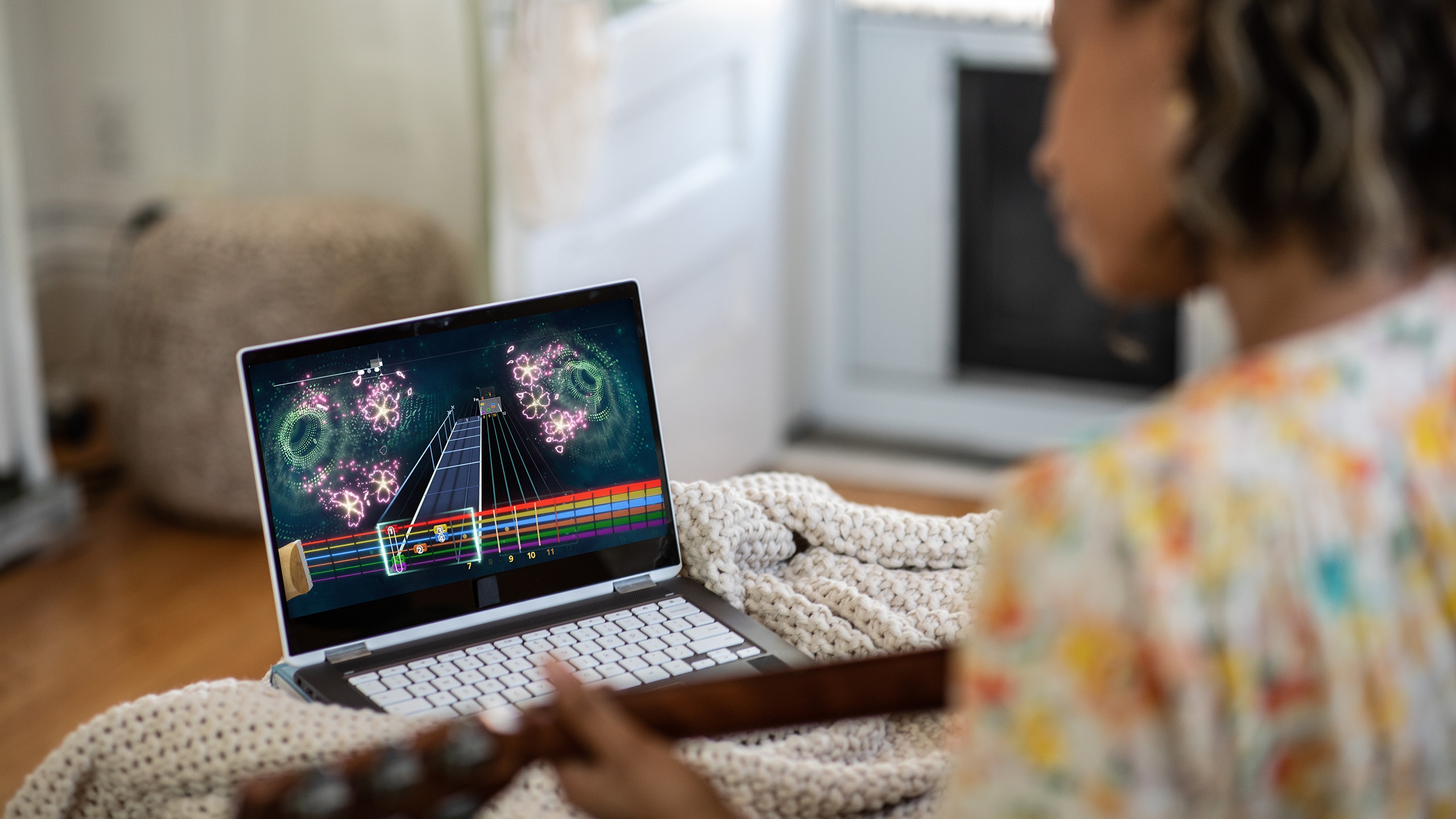Playing guitar is not only a fun hobby, but it can also have numerous benefits for mental health. Studies have shown that playing an instrument, in general, can reduce stress, boost creativity and confidence, improve cognitive function, and enhance social connections.
Learning to play the guitar requires focus, discipline, and patience, which can all contribute to improved mental well-being. In this article, we will explore how playing the guitar can positively impact mental health and how it can be a valuable tool for those looking to improve their overall well-being.
1. Improved Mood and Stress Relief
Playing the guitar can significantly impact a person's mood and stress levels. Numerous studies have shown that music, in general, can reduce stress, anxiety, and depression. Music therapy, which often involves playing an instrument, has been found to be effective in reducing symptoms of anxiety and depression.
In music therapy, a therapist will work with a patient to use music to address emotional, cognitive, and social needs. Playing the guitar in a therapeutic setting can help patients express themselves, process emotions, and learn coping mechanisms.
Another study found that playing and listening to an instrument, such as the guitar, can lower the levels of cortisol, the hormone associated with stress. The study showed that playing an instrument for just 30 minutes can reduce cortisol levels in the body.
2. Boost Creativity and Confidence
![[RS+] 4 Benefits of Playing Guitar for Your Mental Health SEO ARTICLE - 1](http://staticctf.ubisoft.com/J3yJr34U2pZ2Ieem48Dwy9uqj5PNUQTn/6SrBT63ihGul9kuk3bYcJI/dfd8363da764b91ccb25b26685bddef0/4_Benefits_of_Playing_Guitar_for_Your_Mental_Health-1.jpg)
Playing the guitar can also positively impact a person's creativity and confidence. The act of writing music with an instrument can unlock creativity and allow for self-expression. Playing guitar can also be a form of improvisation, allowing for creative freedom and exploration.
Creating music out of thin air requires practice and discipline, which can also help build confidence, and as a person becomes more skilled at playing the guitar, they may feel a sense of accomplishment and pride in their abilities. Learning to play a new song or mastering a difficult technique can also boost confidence and self-esteem.
Playing guitar can also provide an outlet for self-expression and help with emotional regulation.
As a person becomes more confident in their guitar-playing abilities, they may feel more comfortable expressing themselves through music and using the guitar as a tool for communication. Research has shown that playing an instrument can improve overall cognitive function, especially in terms of creativity.
3. Cognitive Improvement
Playing the guitar can also have functional benefits, including improving memory, focus, and concentration. The act of playing an instrument requires a person to use multiple areas of the brain, including motor skills and visual and auditory processing, which can help improve overall cognitive function.
Playing the guitar requires focus and concentration, which can be beneficial for overall cognitive function, and as a person becomes more skilled at playing the guitar, they may be able to focus more on the music and block out distractions, which can improve attention and concentration abilities.
Playing the guitar can also help slow down cognitive decline in older adults. One study found that playing an instrument, such as the guitar, can help improve cognitive function in older adults. The study suggests that playing an instrument can help slow down age-related cognitive decline and may even support brain plasticity.
4. Social Benefits
![[RS+] 4 Benefits of Playing Guitar for Your Mental Health SEO ARTICLE - 2](http://staticctf.ubisoft.com/J3yJr34U2pZ2Ieem48Dwy9uqj5PNUQTn/3I2vRtAWcmLF95PEpvtMQd/170548755d3c45cef878ac6d4c12b659/4_Benefits_of_Playing_Guitar_for_Your_Mental_Health-2.jpg)
Playing the guitar can also have major social benefits, including helping to foster connections with others and building social skills. Playing guitar can be a great way to connect with other musicians and music lovers, leading to networking opportunities with all sorts of wonderful people.
Playing guitar with others, such as joining a band or music group, can also be great for social skills and developing your teamwork skills. Being part of a band or music group requires a lot of collaboration and communication, which can improve interpersonal skills. As anyone who's been in a band before can attest, working with others to create music takes a lot of flexibility which is an excellent life skill to build!
Performing in front of others can be intimidating, but it can also be a great way to build confidence and improve public speaking skills.
How To Get Started Playing the Guitar
![[RS+] 4 Benefits of Playing Guitar for Your Mental Health SEO ARTICLE - 3](http://staticctf.ubisoft.com/J3yJr34U2pZ2Ieem48Dwy9uqj5PNUQTn/4KLAdXPEj77viyfxkHGmmz/10f987bc2ce2b75eef2cc152207a3a66/4_Benefits_of_Playing_Guitar_for_Your_Mental_Health-3.jpg)
Getting started playing the guitar can be an exciting and rewarding experience, but it can also be overwhelming to start something new. First things first, you'll need your own guitar. Choose one that's appropriate for your skill level and budget, something that isn't too flashy but feels good to play --- a good starting point is an acoustic guitar with light gauge strings.
Next, learn the basic chords and strumming patterns. Focus on learning a few chords first and practice transitioning between them smoothly.
Using online guitar lessons and workshops to learn at your own pace is an excellent way to build your skills from the ground up. Your fingers will likely get tired quickly, but try to find time to practice every day if you can, even if it's just a few minutes. If you can, find a friend or join a group of fellow guitarists to practice and learn together, because playing with others can be a great way to stay motivated and learn new skills.
In Conclusion
Playing the guitar has many mental health benefits, including improved mood, reduced stress, enhanced creativity, cognitive benefits, and social benefits. Learning to play the guitar can be a fun and rewarding experience that provides a sense of accomplishment and self-expression, which means that whether you're a beginner or an experienced musician, playing the guitar is going to be a great way to improve your mental health and well-being.
So, why not pick up a guitar and start playing today with Rocksmith+? You never know how much it could positively impact your life!
Sources:
Music Therapy | Cleveland Clinic
The Effect of Music on the Human Stress Response | NCBI
Does Playing a Musical Instrument Make You Smarter? | Psychology Today
Cognitive Benefits From a Musical Activity in Older Adults | Frontiers









